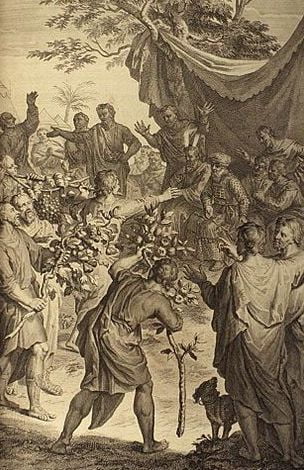The Jugoslavs form a national unit and are ethnologically part of the Slavonic race. Jugoslav literature begins with translations of the Bible by Cyril and Methodius, the “Slavonic Apostles,” about the middle of the Ninth Century. During the first period of the nation`s literary history, from the Twelfth to the Fifteenth Century, several biographies and chronicles were produced.
Toward the end of the Fourteenth Century and until the beginning of the Nineteenth Century the Jugoslavs fell under the domination of the Turks, who practically arrested national life. There were, however, those who, despite this catastrophe, tried to carry on the traditions of their literature.
The deliverance from Turkish rule brought with it a gradual revival. At first, however, little was written in the Jugoslav languages (Serbian, Croatian, and Slovenian), because the printing presses throughout the country had been destroyed by the Turks. The books imported from Russia were printed in Russian, and were not familiar to the mass of readers. Dositey Obradovich (1739—1811), writing in the vernacular, became immensely popular, so much so that he was appointed Minister of Public Education, in which capacity he established the first Serbian college at Belgrade.
Vuk Karajich (1787—1864) is considered by many as the father of modern Serbian literature. He collected some ten volumes of national poetry and songs which served as an inspirational source for other writers.
Stefan Sremacs
The Jugoslavs have as yet no great novelist, but they have some successful short story writers, among whom Dr. Lazarevich (1851—1890) takes high rank. Another popular author is Stefan Sremacs, whom literary critics have dubbed the “Serbian Dickens.” Sima Matavulj, another much read author, paints vivid pictures of the Dalmatian and Montenegrin Serbians in his delightful stories.
The division designated as “Jugoslav” includes the political groups speaking the Serbian, Croatian, and Slovenian tongues. Certain territories, which were before 1914 under Austrian rule, are now joined with Serbia, forming Jugoslavia.
The short story is a comparatively recent development. In the three examples included in the present volume no one can fail to observe the folk element, which characterizes the work of the best Jugoslav writers.
Read More about The Museum of Yalvac








